Jaguar I-Pace vs MG MGS5 EV - Differences and prices compared
Compare performance (400 HP vs 231 HP), boot space and price (79200 £ vs 32600 £ ) at a glance. Find out which car is the better choice for you – Jaguar I-Pace or MG MGS5 EV?
Costs and Efficiency:
Price and efficiency are often the first things buyers look at. Here it becomes clear which model has the long-term edge – whether at the pump, the plug, or in purchase price.
MG MGS5 EV has a clearly advantage in terms of price – it starts at 32600 £ , while the Jaguar I-Pace costs 79200 £ . That’s a price difference of around 46638 £.
In terms of energy consumption, the advantage goes to the MG MGS5 EV: with 15.50 kWh per 100 km, it’s decisively more efficient than the Jaguar I-Pace with 25.20 kWh. That’s a difference of about 9.70 kWh.
As for electric range, the MG MGS5 EV performs slight better – achieving up to 480 km, about 11 km more than the Jaguar I-Pace.
Engine and Performance:
Under the bonnet, it becomes clear which model is tuned for sportiness and which one takes the lead when you hit the accelerator.
When it comes to engine power, the Jaguar I-Pace has a clearly edge – offering 400 HP compared to 231 HP. That’s roughly 169 HP more horsepower.
In acceleration from 0 to 100 km/h, the Jaguar I-Pace is distinct quicker – completing the sprint in 4.80 s, while the MG MGS5 EV takes 6.30 s. That’s about 1.50 s faster.
There’s also a difference in torque: Jaguar I-Pace pulls significantly stronger with 696 Nm compared to 350 Nm. That’s about 346 Nm difference.
Space and Everyday Use:
Cabin size, boot volume and payload all play a role in everyday practicality. Here, comfort and flexibility make the difference.
Both vehicles offer seating for 5 people.
In curb weight, MG MGS5 EV is clearly perceptible lighter – 1710 kg compared to 2226 kg. The difference is around 516 kg.
In terms of boot space, the Jaguar I-Pace offers evident more room – 638 L compared to 453 L. That’s a difference of about 185 L.
When it comes to payload, Jaguar I-Pace somewhat takes the win – 444 kg compared to 395 kg. That’s a difference of about 49 kg.
Who comes out on top?
Overall, the MG MGS5 EV shows itself to be has the upper hand and secures the title of DriveDuel Champion.
It convinces with the more balanced overall package and proves to be the more versatile choice for everyday use.
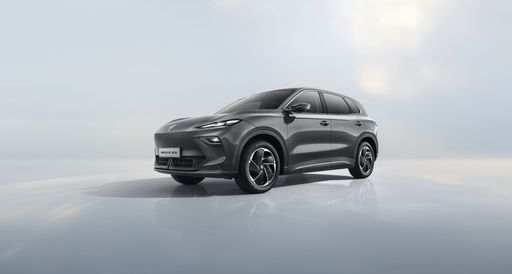
MG MGS5 EV
Costs and Consumption
View detailed analysis
Engine and Performance
View detailed analysis
Dimensions and Body
View detailed analysis
Jaguar I-Pace
The Jaguar I-Pace pairs instantaneous electric shove with graceful, feline looks, so it never feels like you're piloting a refrigerator with style. Inside it serves proper Jaguar luxury and clever packaging, making it a tempting choice for buyers who want EV convenience without losing personality.
details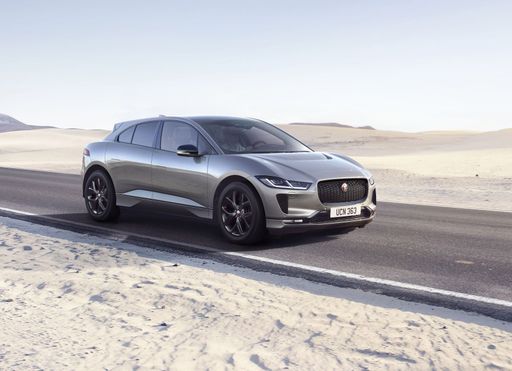
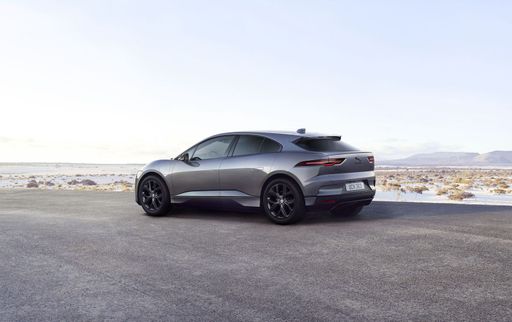
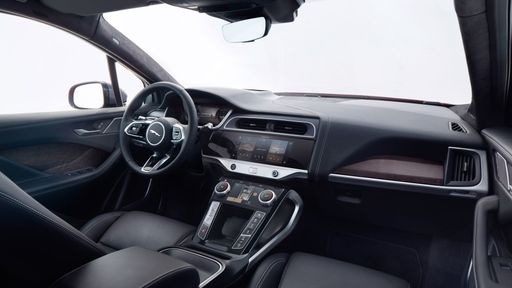
MG MGS5 EV
The MG5 EV stands out as one of the few fully electric estate cars available in today's market. Known for its practicality, it offers ample space and a smooth driving experience, perfect for families looking to transition to an electric vehicle without compromising on roominess or comfort. Its sleek design and competitive pricing make it an attractive choice for eco-conscious drivers who value both style and sustainability.
details
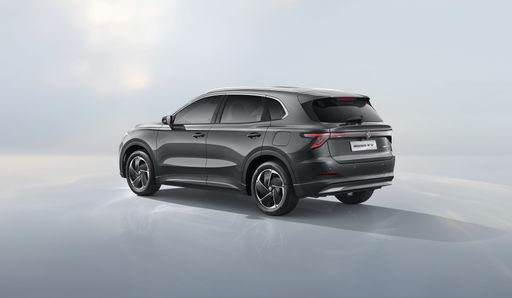
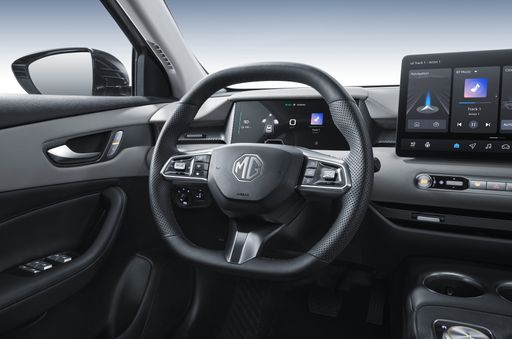
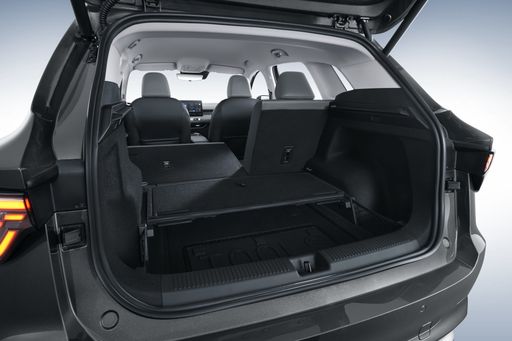
Costs and Consumption |
|
|---|---|
|
Price
79200 - 85500 £
|
Price
32600 - 38600 £
|
|
Consumption L/100km
-
|
Consumption L/100km
-
|
|
Consumption kWh/100km
25.20 kWh
|
Consumption kWh/100km
15.5 - 16.6 kWh
|
|
Electric Range
469 km
|
Electric Range
340 - 480 km
|
|
Battery Capacity
84.70 kWh
|
Battery Capacity
-
|
|
co2
0 g/km
|
co2
0 g/km
|
|
Fuel tank capacity
-
|
Fuel tank capacity
-
|
Dimensions and Body |
|
|---|---|
|
Body Type
SUV
|
Body Type
SUV
|
|
Seats
5
|
Seats
5
|
|
Doors
5
|
Doors
-
|
|
Curb weight
2226 kg
|
Curb weight
1710 - 1800 kg
|
|
Trunk capacity
638 L
|
Trunk capacity
453 L
|
|
Length
4682 mm
|
Length
-
|
|
Width
2011 mm
|
Width
1849 mm
|
|
Height
1566 mm
|
Height
-
|
|
Max trunk capacity
1453 L
|
Max trunk capacity
-
|
|
Payload
444 kg
|
Payload
370 - 395 kg
|
Engine and Performance |
|
|---|---|
|
Engine Type
Electric
|
Engine Type
Electric
|
|
Transmission
Automatic
|
Transmission
Automatic
|
|
Transmission Detail
Reduction Gearbox
|
Transmission Detail
Reduction Gearbox
|
|
Drive Type
All-Wheel Drive
|
Drive Type
Rear-Wheel Drive
|
|
Power HP
400 HP
|
Power HP
170 - 231 HP
|
|
Acceleration 0-100km/h
4.80 s
|
Acceleration 0-100km/h
6.3 - 8 s
|
|
Max Speed
200 km/h
|
Max Speed
-
|
|
Torque
696 Nm
|
Torque
250 - 350 Nm
|
|
Number of Cylinders
-
|
Number of Cylinders
-
|
|
Power kW
294 kW
|
Power kW
125 - 170 kW
|
|
Engine capacity
-
|
Engine capacity
-
|
General |
|
|---|---|
|
Model Year
2023
|
Model Year
2025
|
|
CO2 Efficiency Class
A
|
CO2 Efficiency Class
A
|
|
Brand
Jaguar
|
Brand
MG
|
What drivetrain options does the Jaguar I-Pace have?
Available configurations include All-Wheel Drive.




